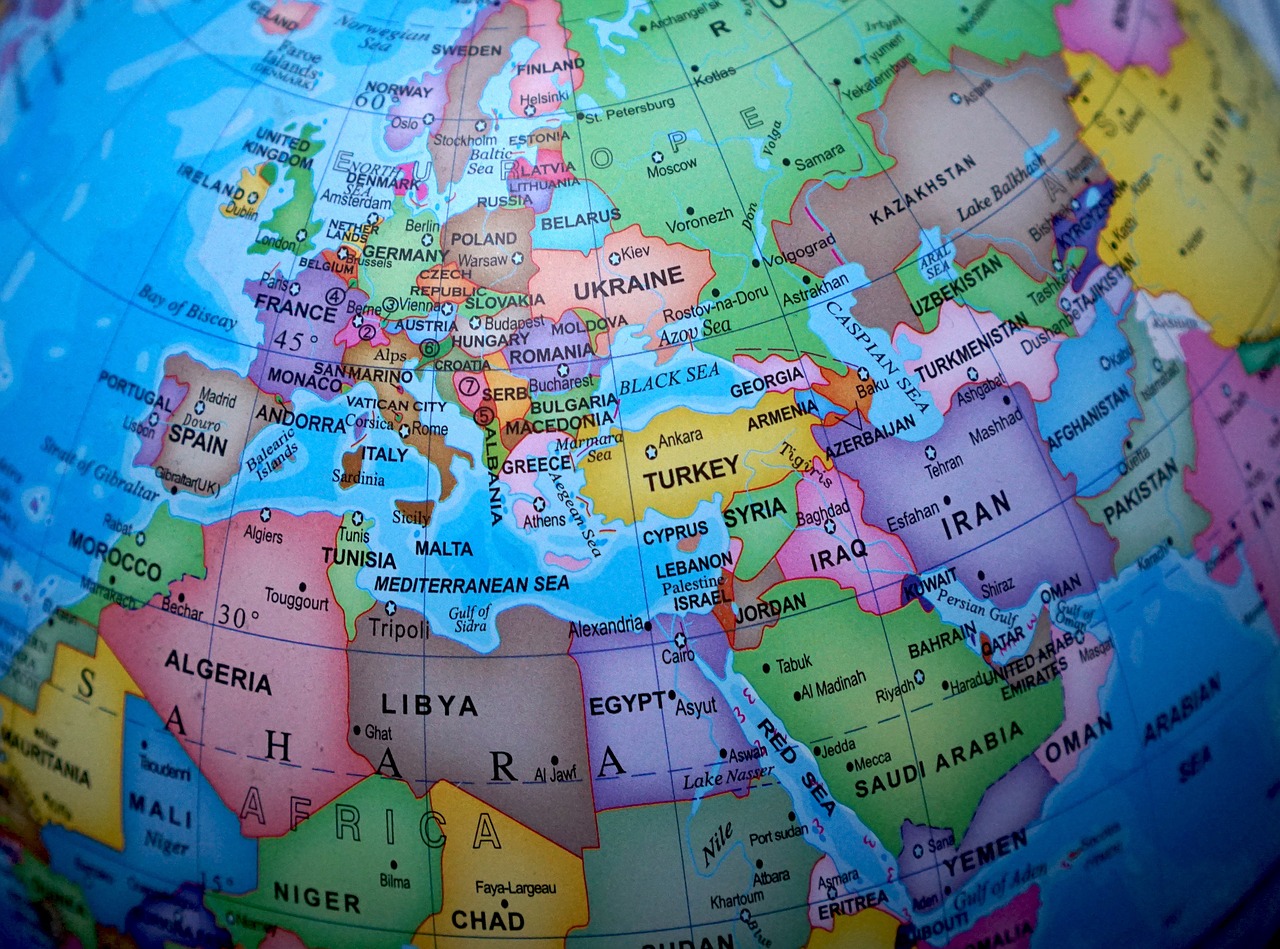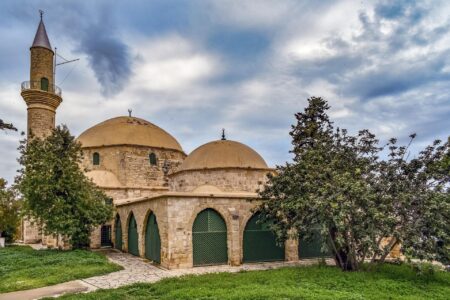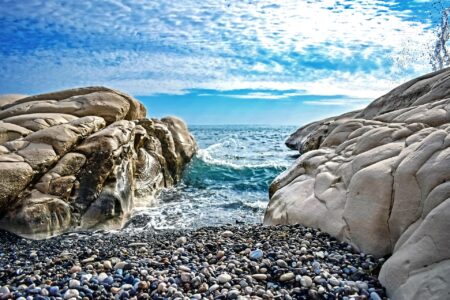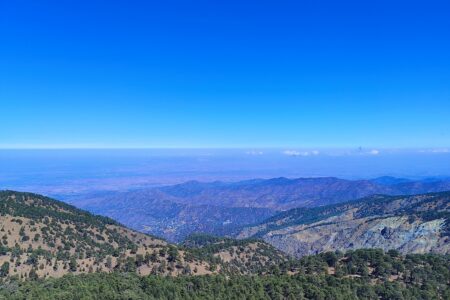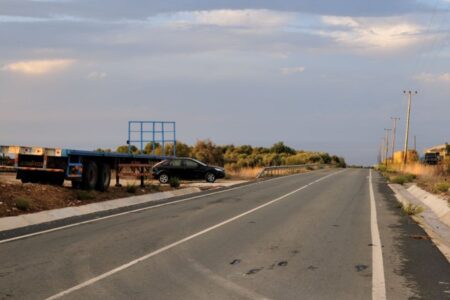Cyprus is a fascinating island nation located in the eastern Mediterranean. It is renowned for its stunning beaches, rich history, and unique culture. Additionally, Cyprus is considered a crossroads of three continents: Europe, Asia, and Africa. This gives it special significance in both geopolitical and cultural terms. As a result, the island attracts not only tourists but also researchers from around the globe. Its centuries-old history and modern development make Cyprus an intriguing subject for exploration.
Contents
Geographical Location of Cyprus
Cyprus is situated in the eastern Mediterranean, at the intersection of sea routes connecting Europe and the Middle East. It lies approximately 75 kilometers south of Turkey, 105 kilometers west of Syria, and 380 kilometers north of Egypt. This strategic location has defined the island’s importance throughout its history, making it a focus of interest for various empires and states.
The island covers an area of approximately 9,251 square kilometers, making it the third-largest island in the Mediterranean after Sicily and Sardinia. The terrain of Cyprus is diverse: the central part is occupied by the Mesaoria plain, while the west and south are covered by the Troodos mountain ranges. Mount Olympus, the highest point on the island, reaches 1,952 meters above sea level. To the north stretches the Kyrenia mountain range, separated from the central plain.
Cyprus’s geographical position influences its climate, flora, and fauna. Its proximity to the Middle East and North Africa results in hot, dry summers and mild winters. Additionally, the island experiences seismic activity due to its location in a tectonic fault zone.
History of the Island
The history of Cyprus spans over 10,000 years, with the earliest settlements dating back to the Neolithic period. Archaeological finds indicate a developed culture and trade links with neighboring regions. During the Bronze Age, Cyprus was known for its copper deposits, which were exported to various countries.
In antiquity, the island was successively influenced by Egyptians, Assyrians, Persians, and Greeks. Alexander the Great incorporated Cyprus into his empire, and it later became part of the Hellenistic states. In 58 BC, Cyprus was annexed to the Roman Empire, becoming an important province.
During the Byzantine period, the island served as a key stopover on the route to the Holy Land. In 1191, during the Third Crusade, English King Richard the Lionheart captured Cyprus and later sold it to the Knights Templar. The Venetian Republic ruled the island from 1489 to 1571, strengthening its defenses against Ottoman attacks.
The Ottoman Empire conquered Cyprus in 1571, maintaining control until the late 19th century. After the Russo-Turkish War of 1877–1878, the island came under British administration through the Cyprus Convention. Cyprus gained independence in 1960, but political instability led to intercommunal conflicts between Greek and Turkish Cypriots.
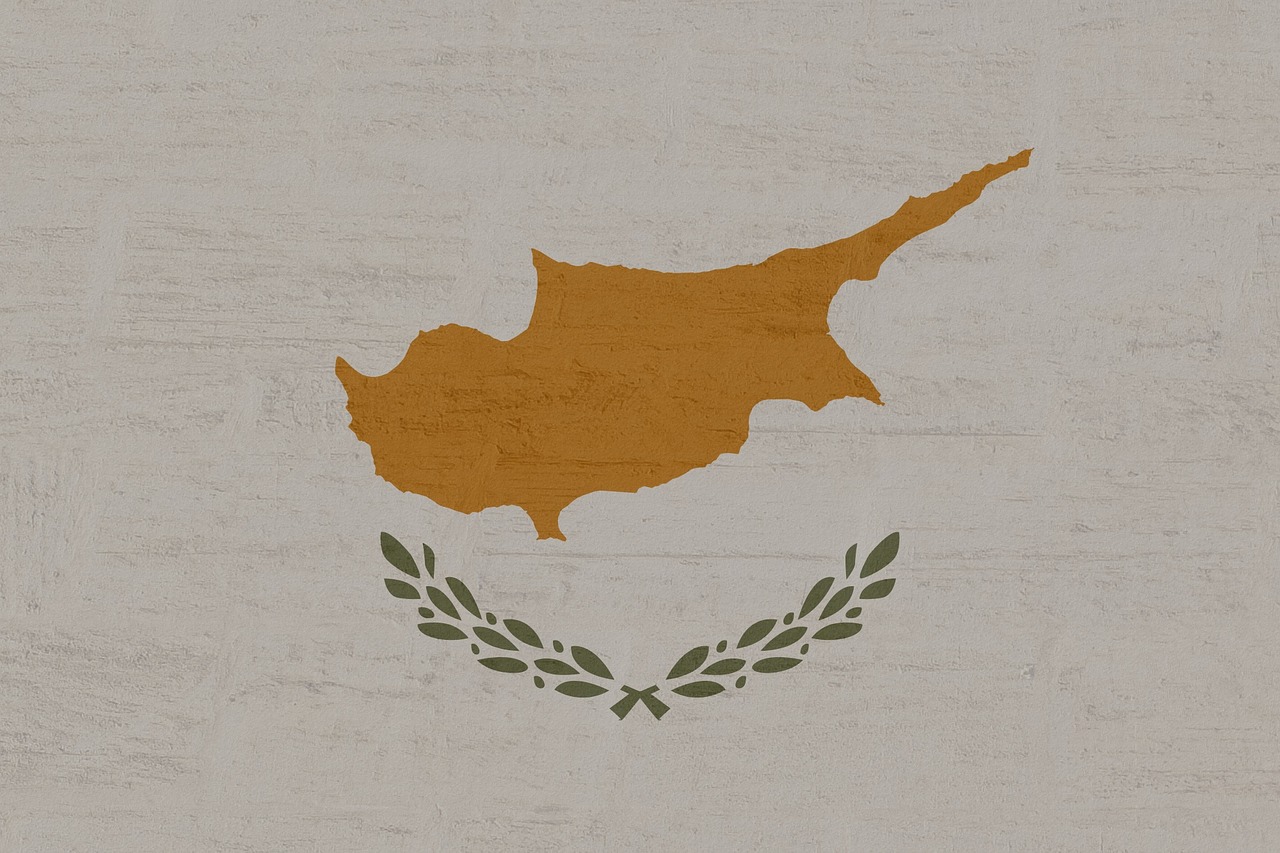
In 1974, following a coup, Turkey deployed troops to the island’s north, resulting in its division. Since then, Cyprus has remained split into two parts: the Republic of Cyprus and the unrecognized Turkish Republic of Northern Cyprus. Despite numerous reunification attempts, a political solution has yet to be reached.
Climate and Nature
Cyprus boasts a favorable climate, making it ideal for living and vacationing. The island enjoys over 300 sunny days per year, one of the highest rates in Europe. Summers last from May to October, with average temperatures ranging from 25 to 35 degrees Celsius. Winters are mild, with temperatures between 10 and 15 degrees.
The island’s nature is rich and diverse. The Troodos mountains are home to pine forests, including the Cypriot black pine and cedar. Numerous bird species, including migratory ones, inhabit the island, attracting ornithologists. In coastal waters, one can find Mediterranean monk seals and sea turtles.
Cyprus places great emphasis on environmental conservation. National parks and reserves, such as the Akamas Peninsula in the west, have been established. Conservation programs focus on protecting rare species and ecosystems. Additionally, the island actively participates in international environmental initiatives.
Culture and Population
The culture of Cyprus reflects its rich history and multicultural heritage. Greek, Turkish, British, and Middle Eastern influences blend together. Architectural styles include ancient temples and theaters, as well as medieval castles and monasteries. The island is famous for its archaeological landmarks, such as the ancient cities of Kourion and Salamis.
Cypriot musical traditions are vibrant and diverse. Folk music incorporates instruments like the lute and violin. Dances, such as “susta” and “kartsilama,” are performed at festivals and family events. Modern Cypriot music evolves under European and Middle Eastern influences.
Education plays a significant role in Cypriot society. The literacy rate is high, and many residents are multilingual. Cypriot universities attract international students with English-language programs. The island is also known for its arts festivals, such as the International Festival in Larnaca, which features musicians and performers from around the world.
Economy and Tourism
Cyprus’s economy is diverse and dynamic. The services sector accounts for about 80% of GDP. Banking and finance play a key role, attracting foreign investment. The island offers favorable tax conditions and well-developed business infrastructure.
The tourism industry is thriving, offering a variety of activities. In recent years, eco-tourism and agro-tourism have gained popularity. Visitors can stay in traditional villages, learn local crafts, and participate in farming. This promotes sustainable development and supports local communities.
Thanks to its favorable tax regime, Cyprus attracts international companies and investors. As a member of the European Union, Cyprus uses the euro as its currency, facilitating trade and financial operations with other EU countries. The technology and innovation sectors are growing, creating new jobs and opportunities for young people.
Cyprus’s transportation infrastructure is well-developed. International airports in Larnaca and Paphos connect the island to major cities in Europe and the Middle East. Maritime ports support freight and passenger transport, enhancing trade and logistics.
Cyprus is a unique nation combining a rich history, cultural diversity, and a strategic geographical location. Its role on the international stage is significant in both political and economic terms. The island offers numerous opportunities for tourism, business, and cultural exchange, continuing to attract global attention.
Visiting Cyprus allows you to immerse yourself in the atmosphere of ancient civilizations, enjoy natural beauty, and meet hospitable locals. The island provides a unique experience, blending tradition and modernity, and remains a vital and appealing destination on the world map.

